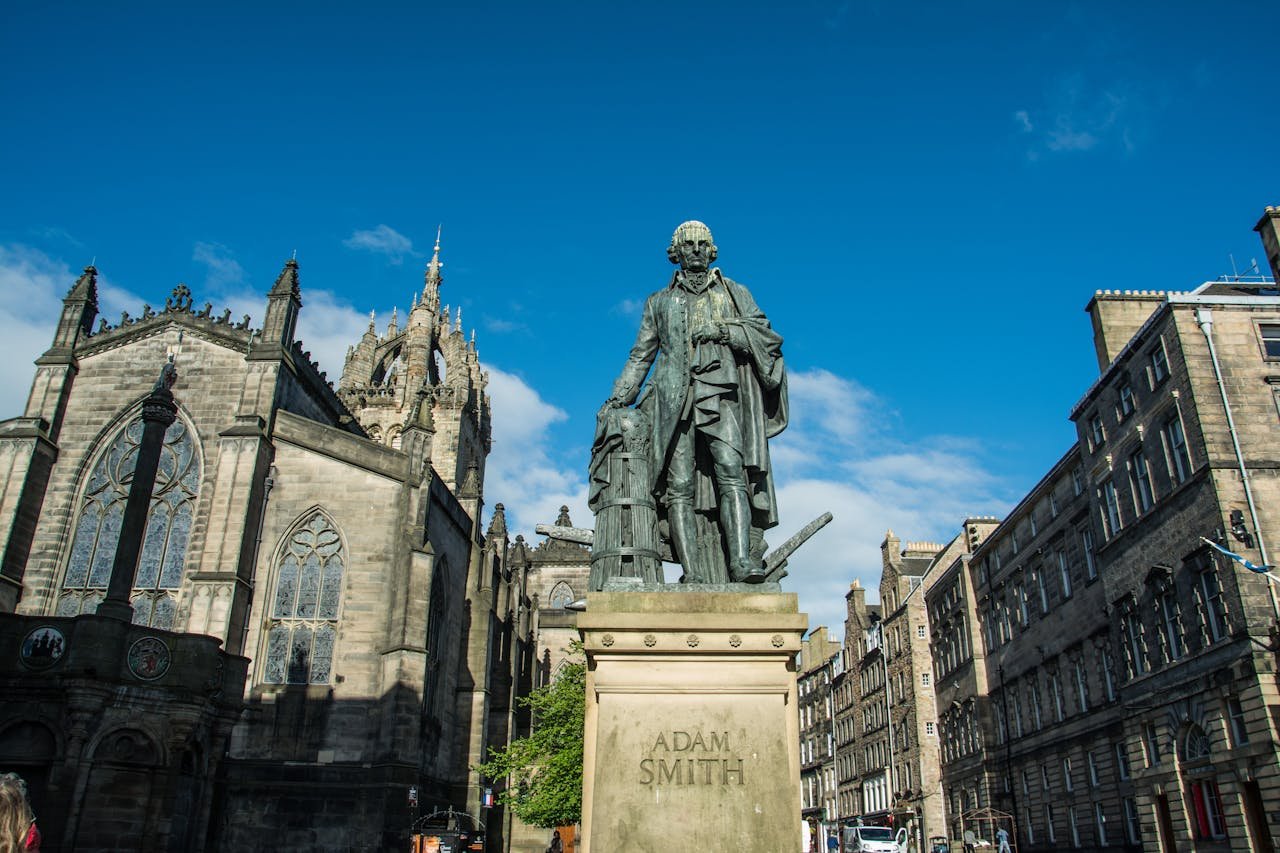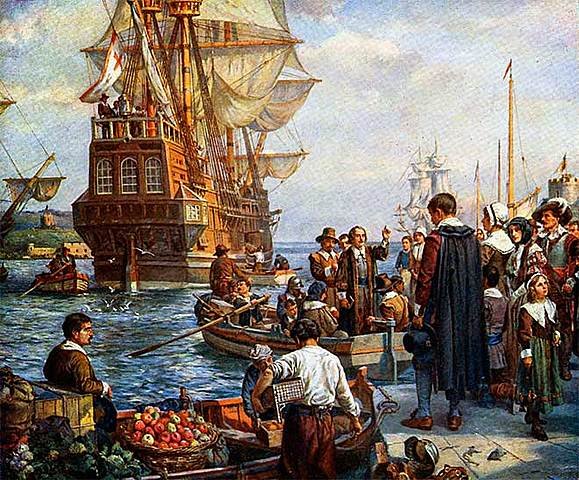Introduction
John Locke, recognized as one of the most influential philosophers of the 17th century, has left an indelible mark on multiple fields of knowledge. His thought not only shaped political philosophy but also significantly influenced economics and international trade. His theories on property, individual rights, and the role of government in the economy laid the foundation for many ideas that prevail today.
Locke proposed that private property is a natural right derived from individual labor—a notion that transformed the understanding of economics in his time. By closely linking property with personal effort, this revolutionary idea became a fundamental pillar for the development of capitalism. His focus on economic freedom and the protection of property rights profoundly influenced both classical and modern economic thought.
In the realm of international trade, Locke advocated for free trade and the elimination of trade barriers. He believed that competition and the free exchange of goods and services were crucial for economic growth and national prosperity. These ideas contributed to the formation of liberal economic policies that supported globalization and the expansion of trade between nations.
In this context, John Locke distinguished himself not only as a political philosopher but also as a pioneer in economics. His contributions remain relevant today, providing a theoretical framework that underpins many contemporary economic practices and international trade policies. Understanding his legacy allows us to appreciate the depth and breadth of his impact on these disciplines.
You can read more about the different founding fathers like Locke here:
Historical Context and Biography of John Locke
John Locke, one of the most influential Enlightenment thinkers, was born on August 29, 1632, in Wrington, Somerset, England. He received his academic training at the prestigious University of Oxford, where he studied philosophy, medicine, and the natural sciences. The education he received at Oxford, along with his keen intellect, prepared him to make significant contributions in both philosophy and economics.
Locke lived during a period marked by great social, political, and economic changes. In the 17th century, England experienced the Glorious Revolution, which culminated in the consolidation of parliamentary power over the monarchy. This historical context deeply influenced Locke’s ideas about liberty, government, and property—concepts that would later be reflected in his writings.
The English intellectual is best known for his work Two Treatises of Government (1689), in which he argues in favor of representative government and the protection of the natural rights of man, such as life, liberty, and property. These ideas were revolutionary in his time and laid the foundations for modern liberal thought, leaving a lasting impact on the development of Western democracies.
Additionally, Locke wrote An Essay Concerning Human Understanding (1690), in which he explored the nature of knowledge and the human mind. This work influenced epistemology and psychology, establishing the theory that knowledge is derived from sensory experience.
Locke’s influence on economics is equally notable. His theories on private property and the value of labor were fundamental to the development of classical economic thought. Locke argued that private property is a natural right derived from the labor one invests in transforming natural resources. These ideas influenced later economists such as Adam Smith and David Ricardo, who laid the groundwork for market economies.
Locke and Private Property: Economic Foundations

John Locke presented his theory of private property in Two Treatises of Government. In this work, Locke argues that private property is justified through labor. According to Locke, when an individual mixes their labor with natural resources, those resources become their property. This revolutionary idea not only had a significant impact on political philosophy but also established important foundations for economic thought.
In Locke’s view, labor is the fundamental element that legitimizes private property. This perspective departed from earlier notions based on inheritance or social status. By establishing that anyone can acquire property through work, Locke democratized access to wealth and fostered an ethic of effort and productivity. This principle—that property is derived from labor—has profoundly influenced subsequent economic theories, including liberal capitalism.
Locke’s ideas also resonate with the concept of natural rights. He maintained that individuals have inalienable rights to life, liberty, and property. In an economic context, this means that individuals are free to use and dispose of their property as they see fit, provided they do not harm others. This approach provided a philosophical justification for a market economy where competition and private ownership are fundamental.
Moreover, Locke’s theory of private property underscores the importance of consent and contracts in economic transactions. The idea that property must be acquired in a fair and consensual manner became a key principle for international trade. By promoting mutual respect and reciprocity in exchanges, Locke contributed to building an ethical framework for global economic activities.
Locke and the Theory of Value and Money
John Locke left an enduring mark on economics and international trade with his theories on the value of goods and the function of money. In his essay Some Considerations of the Consequences of the Lowering of Interest, and Raising the Value of Money (1691), Locke argued that the value of goods is not intrinsic but depends on the utility and demand attributed to them by people. According to Locke, value is determined by the amount of labor required to produce a good and its relative scarcity.
Locke also delved into the role of money in the economy. He maintained that money has no inherent value but acts as a medium of exchange that facilitates trade. In his monetary theory, money must be durable, divisible, and have a value recognized by all members of society. These characteristics enable money to serve as a unit of account and a store of value, thereby facilitating wealth accumulation and investment.
Locke’s ideas on value and money significantly contributed to the understanding of markets and trade in his era and beyond. By establishing that the value of goods is subjective and depends on individual perceptions, Locke laid the groundwork for the modern theory of marginal value. Furthermore, his analysis of money as an essential instrument for international trade helped shape the foundations of classical monetary theory.
Contributions to International Trade
John Locke made significant contributions to the understanding of international trade. His perspective emphasized trade as a vital source of wealth and well-being for nations. Through his writings, Locke underscored the importance of maintaining a favorable trade balance—a concept fundamental to the mercantilist theory dominant in his time.
Locke argued that international trade allowed countries to increase their wealth by exporting goods and importing those they could not produce efficiently. He highlighted that a nation’s prosperity depended on its ability to maintain a favorable trade balance, meaning that it should export more than it imported. This approach was aligned with mercantilist ideas, which held that the accumulation of precious metals, such as gold and silver, was crucial for a country’s power and wealth.
Regarding the balance of payments, Locke emphasized the careful management of international transactions. He understood that a sustained trade deficit could lead to a depletion of a country’s precious metal reserves, thereby weakening its economy. Consequently, he advocated for policies that promoted exports and controlled imports to ensure a steady flow of wealth into the nation.
Locke’s ideas on trade balance and the balance of payments remain foundational in modern economics, influencing contemporary commercial and macroeconomic policies. Although mercantilism has been superseded by more modern theories, Locke’s contributions provide valuable historical insight into the dynamics of international trade and its impact on economic well-being.
Locke’s Influence on Later Economic Thought
The influence of John Locke on subsequent economic thought is widely recognized, particularly in the development of classical economics and free market theory. Locke introduced fundamental concepts that profoundly impacted later economists like Adam Smith and David Ricardo, helping to shape modern economic theory.
- Influence on Adam Smith:
Smith, known as the father of modern economics, adopted many of Locke’s ideas. In The Wealth of Nations, Smith expanded on Locke’s notions of private property and competition, arguing that they were essential for economic development and societal prosperity. - Influence on David Ricardo:
David Ricardo, another leading classical economist, was similarly influenced by Locke. Ricardo developed the labor theory of value, which posits that the value of a good is determined by the amount of labor required for its production—a concept that traces back to Locke’s theories on property and labor. Ricardo also championed free trade and comparative advantage, echoing Locke’s emphasis on economic freedom and individual rights.
In essence, John Locke laid the groundwork for many of the ideas that would become pillars of classical economics. His focus on private property, individual rights, and the role of labor in creating value deeply influenced later economic theories and the development of free market principles.
Relevance and Legacy in Modern Economics
John Locke’s contributions to economics and international trade remain profoundly relevant in today’s world. His theories on private property and free markets have shaped the foundation of contemporary economic policies. Locke argued that private property is a natural right derived from individual labor—a concept that continues to be a cornerstone in modern capitalist economies.
In the realm of economic regulation, Locke’s ideas have influenced both advocates of free markets and proponents of limited state intervention. For instance, his emphasis on the right to own and trade property has been crucial in the formulation of intellectual property laws and copyright protections, which are fundamental to technological innovation and economic development in the digital age.
Locke’s thinking has also significantly impacted contemporary debates on market regulation. His principles have been invoked both to argue against excessive government intervention and to justify regulations aimed at balancing private interests with public welfare. A prominent example is the use of his theories by economists and legislators to support competition policies that prevent monopolies and foster more equitable and efficient markets.
In international trade, Locke’s ideas on free exchange have influenced treaties and trade agreements. His vision of an economic system based on free competition and the elimination of trade barriers finds resonance in organizations like the World Trade Organization (WTO), which promotes global trade liberalization.
Ultimately, John Locke’s theories continue to resonate in modern economics, offering a theoretical framework that guides both economic policy and current commercial practices. His legacy endures in the way we understand and manage property, markets, and economic regulation.
References
Ashcraft, R. (1987). Locke’s Two Treatises of Government. Routledge.
Locke, J. (1689). Two Treatises of Government.
Locke, J. (1691). Some Considerations of the Consequences of the Lowering of Interest, and Raising the Value of Money.
Laslett, P. (1960). John Locke: Two Treatises of Government: A Critical Edition. Cambridge University Press.
Dunn, J. (1984). Locke: A Very Short Introduction. Oxford University Press.


